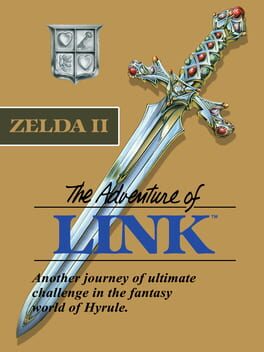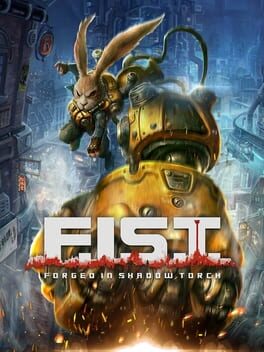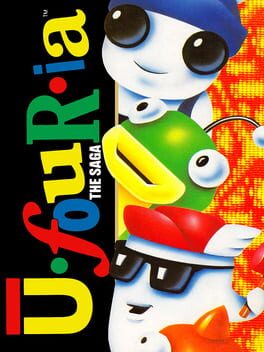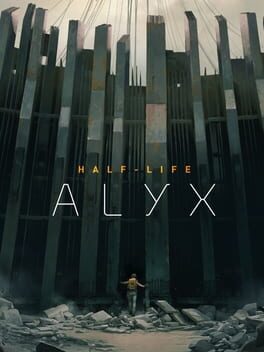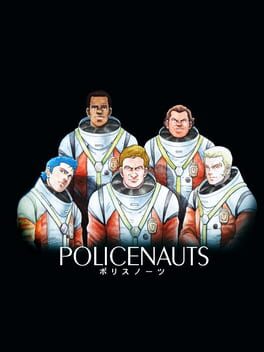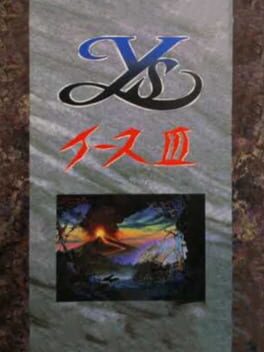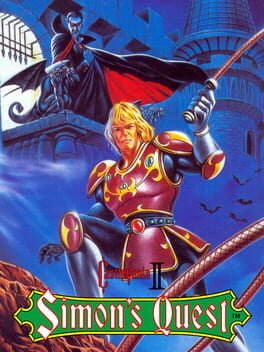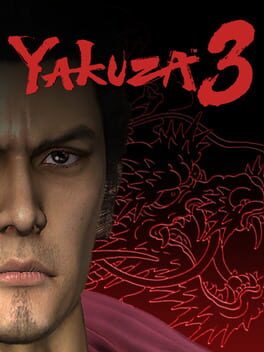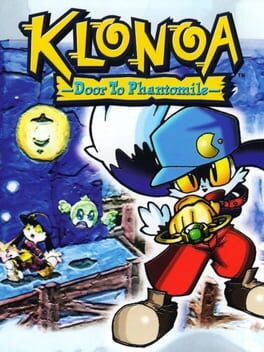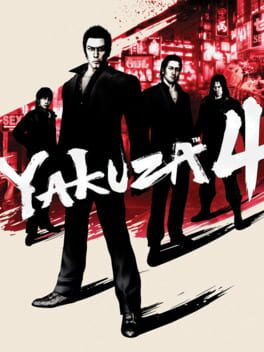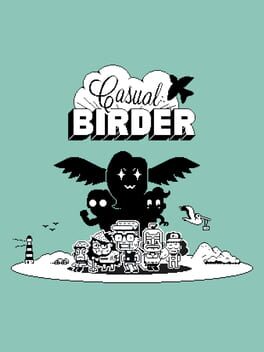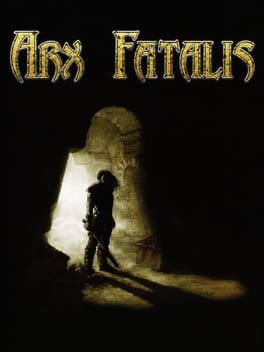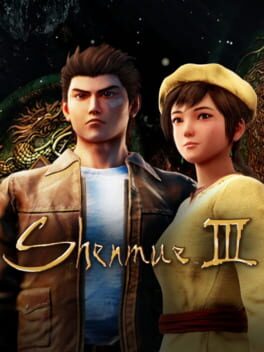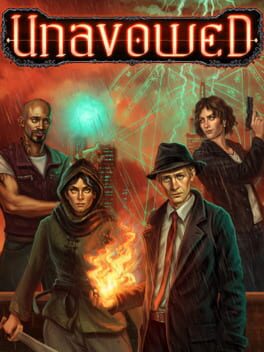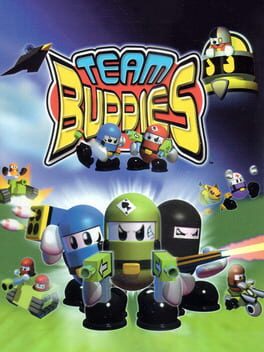Kez
I was surprised how much fun I had playing Zelda II. I'd heard a lot about how punishing and unforgiving it is - and that's true, but the game feels excellent to control. Link is responsive and mobile, and getting through a tough encounter with minimal damage makes you feel very slick indeed.
It's impressive how much you can achieve with just a d-pad and 2 buttons. Obviously, you have attack and jump. When link isn't attacking, he is blocking - either high or low depending on whether you're ducking. As the game progresses you also unlock the iconic down and up stabs from the Smash games - these expand your options greatly as there is a great deal of verticality in the movement.
The magic system also works well, although only 3 of them (shield, jump, life) see a lot of use. The rest are only really useful in specific situations (some of them only need to be used once). Jump is great, and even when not required can make difficult platforming sections much easier. It can throw off your combat timings, as well as using up precious magic, so it's an interesting trade-off!
Zelda II also has an excellent soundtrack, some of which will be familiar to many people. The dungeon theme in particular is incredible, but the whole score is very pleasant and catchy. Which makes the incessant beeping at low health in this game all the more torturous!
Now, don't get me wrong, the game can be very cruel, especially the lives/continue system. You get 3 lives, and after a game over you continue from the starting location of the game. It's not all that bad though, you keep your level (but lose all exp on your current level, which can be a lot in the late game) and any items you've picked up. It can be emotionally draining to respawn at Zelda's side. However, the world is very quick to navigate as you unlock new shortcuts throughout - so I don't think it's quite as severe as it feels.
Although Link gets stronger through the adventure, the enemies do also and appear in increasingly awkward situations. Still, by the endgame you can tank quite a lot of hits and restore your health somewhat frequently if you manage your magic meter well. Although I did struggle in places and get frustrated, in reality even with retries and a couple minutes of extra walking after a continue I was back in action fairly quickly. The game is still rather short by modern standards, so having to replay some sections a few times isn't all that big of a deal.
Zelda II is truly a worthy member of the Zelda lineage, and I think it gets a bit overlooked! Honestly I enjoyed this game more than the original, simply due to the feel of the movement and combat. The soundtrack will stick with me for a long time. Strongly recommended for those with the patience to put up with this game's minor annoyances!
It's impressive how much you can achieve with just a d-pad and 2 buttons. Obviously, you have attack and jump. When link isn't attacking, he is blocking - either high or low depending on whether you're ducking. As the game progresses you also unlock the iconic down and up stabs from the Smash games - these expand your options greatly as there is a great deal of verticality in the movement.
The magic system also works well, although only 3 of them (shield, jump, life) see a lot of use. The rest are only really useful in specific situations (some of them only need to be used once). Jump is great, and even when not required can make difficult platforming sections much easier. It can throw off your combat timings, as well as using up precious magic, so it's an interesting trade-off!
Zelda II also has an excellent soundtrack, some of which will be familiar to many people. The dungeon theme in particular is incredible, but the whole score is very pleasant and catchy. Which makes the incessant beeping at low health in this game all the more torturous!
Now, don't get me wrong, the game can be very cruel, especially the lives/continue system. You get 3 lives, and after a game over you continue from the starting location of the game. It's not all that bad though, you keep your level (but lose all exp on your current level, which can be a lot in the late game) and any items you've picked up. It can be emotionally draining to respawn at Zelda's side. However, the world is very quick to navigate as you unlock new shortcuts throughout - so I don't think it's quite as severe as it feels.
Although Link gets stronger through the adventure, the enemies do also and appear in increasingly awkward situations. Still, by the endgame you can tank quite a lot of hits and restore your health somewhat frequently if you manage your magic meter well. Although I did struggle in places and get frustrated, in reality even with retries and a couple minutes of extra walking after a continue I was back in action fairly quickly. The game is still rather short by modern standards, so having to replay some sections a few times isn't all that big of a deal.
Zelda II is truly a worthy member of the Zelda lineage, and I think it gets a bit overlooked! Honestly I enjoyed this game more than the original, simply due to the feel of the movement and combat. The soundtrack will stick with me for a long time. Strongly recommended for those with the patience to put up with this game's minor annoyances!
A competent and enjoyable Metroidvania. I loved the world design here, the backgrounds in many of the areas are beautiful, the machinery on display looks badass and the character designs are great - especially the robot enemies.
It is very typical Metroidvania fare - exploring a large map, unlocking abilities to access new areas, opening up shortcuts as you go to aid in future navigation. I think the game is broadly successful here, exploration is fun and satisfying and many of the different areas have a nice distinctive style to them.
The weapon variety is cool, and you can unlock a bunch of different moves as the game progresses. I would say there are almost too many combat options, the game has a sort of tutorial section that teaches you complicated combos... but I didn't really find any reason to use them in the actual game. Most enemies and bosses can be taken out with a simple combination of dodging and charged punches. I tried to mix it up a bit toward the end of the game, but a lot of the time the enemies would shut down combos by blocking or teleporting away.
There is also a parry system you unlock partway through the game, this was quite satisfying to pull off but I never really felt confident in it. It works by pushing the left stick in the direction of the attack at the right moment, but the correct moment was often poorly telegraphed and it wasn't really clear which direction I should be pressing. I learned to parry quite a few moves reliably, but any time meeting a new enemy it would be just trial and error figuring out when to parry. Much easier to just dodge and charge punch.
I felt as though the game lost polish as it progressed, perhaps the latter portions were not playtested as thoroughly. A few enemy encounters were way harder than the rest of the game. I also felt that a some of the areas were overly sprawling and tedious to navigate, particularly the underwater sections.
Overall though, the game is quite breezy and fun to play. If you like the genre, it's an easy recommend. Although it feels like I was more critical than I intended in this review, the game is successful in a lot of key areas and delivers a mostly solid experience throughout.
It is very typical Metroidvania fare - exploring a large map, unlocking abilities to access new areas, opening up shortcuts as you go to aid in future navigation. I think the game is broadly successful here, exploration is fun and satisfying and many of the different areas have a nice distinctive style to them.
The weapon variety is cool, and you can unlock a bunch of different moves as the game progresses. I would say there are almost too many combat options, the game has a sort of tutorial section that teaches you complicated combos... but I didn't really find any reason to use them in the actual game. Most enemies and bosses can be taken out with a simple combination of dodging and charged punches. I tried to mix it up a bit toward the end of the game, but a lot of the time the enemies would shut down combos by blocking or teleporting away.
There is also a parry system you unlock partway through the game, this was quite satisfying to pull off but I never really felt confident in it. It works by pushing the left stick in the direction of the attack at the right moment, but the correct moment was often poorly telegraphed and it wasn't really clear which direction I should be pressing. I learned to parry quite a few moves reliably, but any time meeting a new enemy it would be just trial and error figuring out when to parry. Much easier to just dodge and charge punch.
I felt as though the game lost polish as it progressed, perhaps the latter portions were not playtested as thoroughly. A few enemy encounters were way harder than the rest of the game. I also felt that a some of the areas were overly sprawling and tedious to navigate, particularly the underwater sections.
Overall though, the game is quite breezy and fun to play. If you like the genre, it's an easy recommend. Although it feels like I was more critical than I intended in this review, the game is successful in a lot of key areas and delivers a mostly solid experience throughout.
1992
Lovely game, a true metroidvania. It's really fascinating to see a game this old having all the elements you would expect to see in modern games.
The map system works great, exploring is not burdensome at all. As the game is so small, it doesn't really take too long to get anywhere and simply looking around will guide you to the critical path.
Still, this is a game from 1991 and that's most obvious in the game's punishment for death. It is not too severe - you don't lose any items or upgrades but you always respawn at the beginning (the middle of the map) with very little health. Grinding for HP takes a ridiculously long time, but there are quite a few game sections where small slip ups can kill you very quickly.. as well as some boss encounters that will likely take more than one attempt.
The bosses are generally quite simple to figure out, but controls are not the most responsive in this game and when I made mistakes they often felt sort of unfair.
Still, these are minor nitpicks - the game overall is breezy and fun, oozing charm from every pore and feeling incredibly modern in a lot of ways. Highly recommended!
The map system works great, exploring is not burdensome at all. As the game is so small, it doesn't really take too long to get anywhere and simply looking around will guide you to the critical path.
Still, this is a game from 1991 and that's most obvious in the game's punishment for death. It is not too severe - you don't lose any items or upgrades but you always respawn at the beginning (the middle of the map) with very little health. Grinding for HP takes a ridiculously long time, but there are quite a few game sections where small slip ups can kill you very quickly.. as well as some boss encounters that will likely take more than one attempt.
The bosses are generally quite simple to figure out, but controls are not the most responsive in this game and when I made mistakes they often felt sort of unfair.
Still, these are minor nitpicks - the game overall is breezy and fun, oozing charm from every pore and feeling incredibly modern in a lot of ways. Highly recommended!
2020
When I first started hearing about VR, I had all these grand ideas about what could be possible with the medium. How amazing it would feel to be immersed in all the types of games I loved to play. Once I started playing games in VR, it didn't really feel how I expected at all, and the games I enjoyed the most were not really immersive but sort of rhythm or novelty action games like Beat Saber.
Half Life: Alyx is the first game I ever played that came close to realising the initial fantasies I had about the potential of VR gaming. It's immersive, explores game mechanics that could only ever work in VR, looks and feels great. The gravity glove mechanics are a total revelation, the shooting and reloading is intuitive and fun.
Truly a showcase for VR as a platform - this absolutely has to be the greatest immersive/campaign style VR game to date. Anyone who has a way of playing this should definitely do so.
Half Life: Alyx is the first game I ever played that came close to realising the initial fantasies I had about the potential of VR gaming. It's immersive, explores game mechanics that could only ever work in VR, looks and feels great. The gravity glove mechanics are a total revelation, the shooting and reloading is intuitive and fun.
Truly a showcase for VR as a platform - this absolutely has to be the greatest immersive/campaign style VR game to date. Anyone who has a way of playing this should definitely do so.
1994
Policenauts undeniably has plenty of style. This game still looks great to my eyes even today, with great looking art, fantasic music and top quality voice acting.
The story is generally quite engaging, however almost every plot beat was telegraphed in a heavy-handed way so I was never really surprised by anything. Mostly it was just frustrating how clueless the main cast is to all the obvious hints around them.
The main character, Jonathan, is a completely irredeemable sex pest. Although I tried to avoid engaging with this aspect of the game where I could, some of it is simply unavoidable and other times if you just happen to click on the wrong body-part you will trigger some creepy comment or other. Seemingly you can even grope most of the female characters in the game as well with essentially no consequences. Even when Jonathan makes lewd comments about his best friend's teenage daughter upon meeting her for the first time, he barely gets a rebuke in response.
It is very impressive just how many things in the environment have dialogue written for them, there is a huge amount of text in this game and if you take the time to explore there are many little pieces of flavour and worldbuilding all around you (including the in-game glossary with a bunch of information on things people discuss in game).
In terms of actual gameplay, the vast majority of the time you will spend simply talked to people and looking at things like in any standard visual novel. There are a few shooting sections, especially toward the end of the game. These seem difficult but become trivially easy when you realise you can simply press L and R to lock onto targets - you can also play these with a light gun if you have a CRT television.
There is also a section of the game with some finicky puzzles which you have to repeat over and over again in the event of a mistake - this can get very tedious but does actually help to build tension as you approach the end of the gauntlet.
Many of the longer spoken dialogue sections simply can't be paused as far as I can tell, so I ended up having to replay a long section when I got interrupted at one point. Being able to pause any time is a huge quality of life improvement found in most modern games - but certainly not the first time I have experienced this in an older one!
Despite my issues with the game, I was ultimately invested in the story and characters and when the credits rolled I was satisfied with the conclusion.
The story is generally quite engaging, however almost every plot beat was telegraphed in a heavy-handed way so I was never really surprised by anything. Mostly it was just frustrating how clueless the main cast is to all the obvious hints around them.
The main character, Jonathan, is a completely irredeemable sex pest. Although I tried to avoid engaging with this aspect of the game where I could, some of it is simply unavoidable and other times if you just happen to click on the wrong body-part you will trigger some creepy comment or other. Seemingly you can even grope most of the female characters in the game as well with essentially no consequences. Even when Jonathan makes lewd comments about his best friend's teenage daughter upon meeting her for the first time, he barely gets a rebuke in response.
It is very impressive just how many things in the environment have dialogue written for them, there is a huge amount of text in this game and if you take the time to explore there are many little pieces of flavour and worldbuilding all around you (including the in-game glossary with a bunch of information on things people discuss in game).
In terms of actual gameplay, the vast majority of the time you will spend simply talked to people and looking at things like in any standard visual novel. There are a few shooting sections, especially toward the end of the game. These seem difficult but become trivially easy when you realise you can simply press L and R to lock onto targets - you can also play these with a light gun if you have a CRT television.
There is also a section of the game with some finicky puzzles which you have to repeat over and over again in the event of a mistake - this can get very tedious but does actually help to build tension as you approach the end of the gauntlet.
Many of the longer spoken dialogue sections simply can't be paused as far as I can tell, so I ended up having to replay a long section when I got interrupted at one point. Being able to pause any time is a huge quality of life improvement found in most modern games - but certainly not the first time I have experienced this in an older one!
Despite my issues with the game, I was ultimately invested in the story and characters and when the credits rolled I was satisfied with the conclusion.
1991
Castlevania II is a surprisingly solid game overall, brought down by several frustrating aspects - most of which have been discussed at length many times over. Yes, the night transition message is annoying. The fake blocks are annoying. The obtuse progression and useless, cryptic messages are also annoying.
Honestly, I assumed that these factors combined would be enough to completely ruin the game but it didn't for me - not entirely. The moment-to-moment gameplay is largely quite satisfying, with responsive controls, good movement and a nice sense of progression as you gain more items and upgrades. The music is also top notch, though perhaps still the weakest of the original trilogy.
It doesn't stack up against Castlevania or Castlevania 3, but it's cool to see this early attempt to move away from level based action platforming toward the "metroidvania" style the series would eventually be known for and I ultimately had a good time with it.
Honestly, I assumed that these factors combined would be enough to completely ruin the game but it didn't for me - not entirely. The moment-to-moment gameplay is largely quite satisfying, with responsive controls, good movement and a nice sense of progression as you gain more items and upgrades. The music is also top notch, though perhaps still the weakest of the original trilogy.
It doesn't stack up against Castlevania or Castlevania 3, but it's cool to see this early attempt to move away from level based action platforming toward the "metroidvania" style the series would eventually be known for and I ultimately had a good time with it.
2009
Klonoa: The Door to Phantomile is a fairly breezy game. It took me a while to warm up to it, but after a couple levels I was on board. The style of the game is beautiful, personally I prefer it to any of the later remakes. The 2D sprites look great, and the environments are simple but very evocative when combined with the competent score. It's a game that just feels great to play.
Klonoa really only has one main mechanic, you can grab enemies and use them to double jump or as a projectile. Combine this with a sort of fly/float you can do to maintain height in a jump for a few seconds and that's pretty much all your options. The game explores these mechanics very thoroughly, and whie the difficulty ramps up toward the end I never really found it too difficult even in the bonus level.
For me, the length was about perfect. When credits rolled I was satisfied, and surprisingly even quite invested in story, world and characters. Looking forward to playing the sequel!
Klonoa really only has one main mechanic, you can grab enemies and use them to double jump or as a projectile. Combine this with a sort of fly/float you can do to maintain height in a jump for a few seconds and that's pretty much all your options. The game explores these mechanics very thoroughly, and whie the difficulty ramps up toward the end I never really found it too difficult even in the bonus level.
For me, the length was about perfect. When credits rolled I was satisfied, and surprisingly even quite invested in story, world and characters. Looking forward to playing the sequel!
2010
Lots to like about this game - although I feel like the story got very weak toward the end and the awesome cinematic feel of the PS2 games seems a bit less polished.
After four games I am becoming very fond of Kamurocho, it's always nice to revisit - all the new characters were likeable and it's refreshing to play as someone other than Kiryu.
After four games I am becoming very fond of Kamurocho, it's always nice to revisit - all the new characters were likeable and it's refreshing to play as someone other than Kiryu.
2022
Charming game, with a good sense of humour. The photography mechanics are very well done, locating all the birds and figuring out how to get a shot of them is satisfying. Most of them aren't too difficult but a few are a bit of a challenge, either by being well-hidden or just mechanically quite difficult. A nice introduction to the Playdate ecosystem.
2002
Really atmospheric game with a ton of detail, so many impressive little touches. It seems like almost anything you explore or poke around at has some hidden depth. There are different food items you can cook, secret magic spells, hidden quests, secret tunnels, it goes on and on!
The combat feels a bit clunky, but honestly not that much more than Skyrim does and standard for the time/genre. The magic rune system is novel if a bit frustrating at times.
The combat feels a bit clunky, but honestly not that much more than Skyrim does and standard for the time/genre. The magic rune system is novel if a bit frustrating at times.
2019
2018
I really respect what Wadjet Eye tried to do with Unavowed, and a lot of it worked really well for me. However, ultimately I think it was perhaps a little too ambitious in scope for the resources that they have available.
By having so many choices in the game, it means that a huge chunk of the game is not seen in a single playthrough, with many optional pieces of dialog and character building. I think the development resources were stretched a bit too thin in order to achieve this and I felt this most keenly in the puzzle design - almost every puzzle has a very simple solution, there are very few items in the game and much of it is progressed simply by exhausting all dialog options. Many of the encounters feel quite shallow as different characters need to be able to slot in and out of the situations depending on your choices.
I do like the characters and the world, some more than others, and I really liked the idea of having companion characters along for the ride with lots of idle chitchat and colouring the world for you. The "silent protagonist" style makes sense and they do some cool stuff with it, but I still didn't really like it. Your main character is incredibly dull in almost every way and it doesn't really make sense that you have as much control over events as you do.
Still I would be interested in a tighter, more focused sequel. Personally I would prefer if each mission just had set companions that insist they come a long for whatever reason and the entire sequence was structured with those characters in mind.
The achievements were also very annoying, requiring you to play through the pretty much the whole game with every possible combination of characters in order to get them all.
By having so many choices in the game, it means that a huge chunk of the game is not seen in a single playthrough, with many optional pieces of dialog and character building. I think the development resources were stretched a bit too thin in order to achieve this and I felt this most keenly in the puzzle design - almost every puzzle has a very simple solution, there are very few items in the game and much of it is progressed simply by exhausting all dialog options. Many of the encounters feel quite shallow as different characters need to be able to slot in and out of the situations depending on your choices.
I do like the characters and the world, some more than others, and I really liked the idea of having companion characters along for the ride with lots of idle chitchat and colouring the world for you. The "silent protagonist" style makes sense and they do some cool stuff with it, but I still didn't really like it. Your main character is incredibly dull in almost every way and it doesn't really make sense that you have as much control over events as you do.
Still I would be interested in a tighter, more focused sequel. Personally I would prefer if each mission just had set companions that insist they come a long for whatever reason and the entire sequence was structured with those characters in mind.
The achievements were also very annoying, requiring you to play through the pretty much the whole game with every possible combination of characters in order to get them all.
2000
A decent game overall. On the surface it has a lot of RTS elements but the game mostly feels and plays like a multidirectional shooter. There is a bit of early game strategy in terms of getting geared up before your opponents, but your AI buddies mostly just seem to run off and get themselves killed.
The sense of humour on display is extremely of-its-time. This game was very clearly developed in the UK in the lately 90s. As someone who grew up in that era, there is definitely a sense of nostalgia here and I found the silly story and various soundbites to be pretty entertaining. They definitely lean a bit too hard on a few stereotypes though.
I only played the singleplayer campaign, there was quite a bit of variety in mission types. Many variations on "annihilate all enemies", but also some escort style missions and a few boss battles. I found my success or failure in tougher missions often came down to how to enemy AI behaved early on - sometimes they would immediately swarm me before I had a chance to react, and others they would seemingly do nothing at all and wait for me to gear up and seek them out.
A few of the late-game challenges can get quite frustrating, and boiled down to trying them over and over until you find a tactic that works alongside a bit of RNG luck. What made this most annoying is the tedious process of failing a mission and beginning a new attempt. There is no restart option on failure, or within the pause menu of a mission. When you die it shows a screen of your enemies celebrating, boots you out to the level select where you have to dismiss a message telling you that you failed, then you reselect the level, click through the brief, wait for the level to load and finally it begins again. I understand long loading is a technical limitation of the hardware, but I'm sure the waiting could have been significantly reduced by having an immediate retry option. Some missions see you being wiped out in seconds by a huge boss, so your ratio of waiting to actually playing the game can be agonizing at times.
Still, on the whole I enjoyed playing through the game. Although I got stuck in a rut on a few missions, the objective always felt just achievable enough that I kept trying again and again until I finally make a breakthrough. The sense of improvement I felt as a player was tangible throughout and satisfying.
The sense of humour on display is extremely of-its-time. This game was very clearly developed in the UK in the lately 90s. As someone who grew up in that era, there is definitely a sense of nostalgia here and I found the silly story and various soundbites to be pretty entertaining. They definitely lean a bit too hard on a few stereotypes though.
I only played the singleplayer campaign, there was quite a bit of variety in mission types. Many variations on "annihilate all enemies", but also some escort style missions and a few boss battles. I found my success or failure in tougher missions often came down to how to enemy AI behaved early on - sometimes they would immediately swarm me before I had a chance to react, and others they would seemingly do nothing at all and wait for me to gear up and seek them out.
A few of the late-game challenges can get quite frustrating, and boiled down to trying them over and over until you find a tactic that works alongside a bit of RNG luck. What made this most annoying is the tedious process of failing a mission and beginning a new attempt. There is no restart option on failure, or within the pause menu of a mission. When you die it shows a screen of your enemies celebrating, boots you out to the level select where you have to dismiss a message telling you that you failed, then you reselect the level, click through the brief, wait for the level to load and finally it begins again. I understand long loading is a technical limitation of the hardware, but I'm sure the waiting could have been significantly reduced by having an immediate retry option. Some missions see you being wiped out in seconds by a huge boss, so your ratio of waiting to actually playing the game can be agonizing at times.
Still, on the whole I enjoyed playing through the game. Although I got stuck in a rut on a few missions, the objective always felt just achievable enough that I kept trying again and again until I finally make a breakthrough. The sense of improvement I felt as a player was tangible throughout and satisfying.
